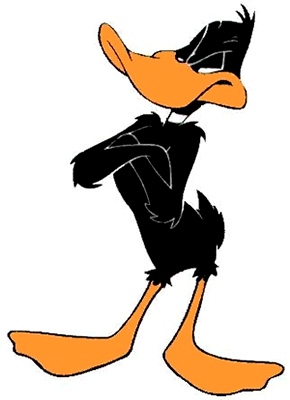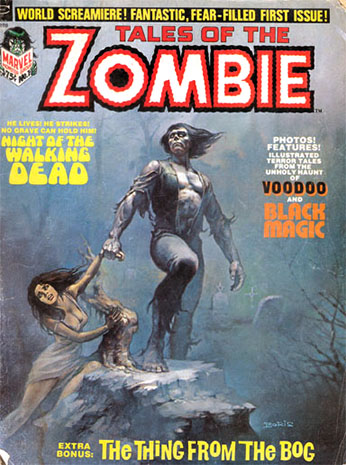


In the character of Mr. Spock, the creators of Star Trek hit a vein of pop culture gold. A little google-estimation suggests that Spock is not as well known as Bugs Bunny, but is better known that Daffy Duck. That’s impressive.
In trying to understand the phenomenon, the first thing that we can dismiss is the notion that Spock is actually what he’s claimed to be: a representative of an alien species that exists sans emotion. It’s pretty obvious from canon that neither Spock nor Vulcans generally are devoid of emotion. My favorite example of this comes from the first Trek movie, where Spock undergoes a ritual that supposedly cleanses him of the last vestiges of emotion. At the end of it, he receives…a medal! I’m sure that every Vulcan who gets the medal cherishes it forever.
A remarkably sly critique of the “unemotional” trope came through in the obscure (and very brief) TV show, Quark, created by Buck Henry. In that show, the character of Ficus Pandurata is without emotion, being a “vegeton,” i.e. seemingly human but actually a plant. In one scene, Ficus is being tortured by being subjected to dry heat and no water. He’s saved by “Princess Libido” who has a crush on him. “Tell me you love me,” she asks as she unties him. His reply:
“Princess, as a Vegeton, and I think you’ll find this interesting, not only do I not love you, I’m not even grateful for your having rescued me.”
Within the context of Star Trek, it is quite obvious that Vulcans possess plenty of emotion; they simply repress them, just as humans do. Vulcans simply repress their emotions better, because they do everything better. Spock is, in every respect, superior to humans, being smarter, stronger, longer-lived, and at least somewhat telepathic. In short, Vulcans are Slans without the tendrils, and in full control of those messy emotions that adolescents have such a lot of trouble with. You may think of Spock as Gary Cooper with pointy ears.
The “without emotion” trope has a substantial pop culture resonance, no doubt for the reason I’ve just suggested, that male adolescent fantasies like to turn teenage awkwardness into an ideal image of “the strong silent type,” and female adolescent fantasies imagine the goodies that accompany the proper unlocking of repressed desire. That seems to have given way to K/S (Kirk/Spock) fiction, also known as “slash fiction,” where predominantly female writers/audiences imagine hot boy-on-boy action between the two Trek protagonists.

Other variations on “unemotional” abound, one of my favorite being the Marvel Comics Tales of the Zombie, where the character lacks emotions because he’s, you know, dead. Hannibal Lector offers another example, being described as having bitten someone’s tongue off while his pulse rate never goes above 70. Both Lector and the Zombie seem like unappealing characters, yet each have their fans, a lot of them in the case of Lector.
The fact that an adolescent fantasy tends toward idolizing the sociopathic (or worse), is not, in and of itself, pathological. Fantasy is not reality. But there are those who try to live in dream castles, and there are those whose day-to-day existence is informed by pathological ideals. To those, I’d suggest that maybe Sulu or Checkov might make better role models, funny accents and all. Certainly would be better than thinking you’ve found Spock and discovering that he’s actually Lector.

 It's also worth noting that, in the original pilot for Star Trek, the "unemotional" character was the female, "Number One," played by Majel Barrett. The character tested very poorly with audiences in the late 1960s, and it took several further iterations before the cold analytical female Trek character became acceptable, with Seven of Nine and T'pol being the exemplars. I strongly suspect that this is part of the "Battle Babe" phenomenon, where the lady's ability to kick your ass takes those pesky adolescent qualms about propriety and renders them moot.
It's also worth noting that, in the original pilot for Star Trek, the "unemotional" character was the female, "Number One," played by Majel Barrett. The character tested very poorly with audiences in the late 1960s, and it took several further iterations before the cold analytical female Trek character became acceptable, with Seven of Nine and T'pol being the exemplars. I strongly suspect that this is part of the "Battle Babe" phenomenon, where the lady's ability to kick your ass takes those pesky adolescent qualms about propriety and renders them moot.

No comments:
Post a Comment